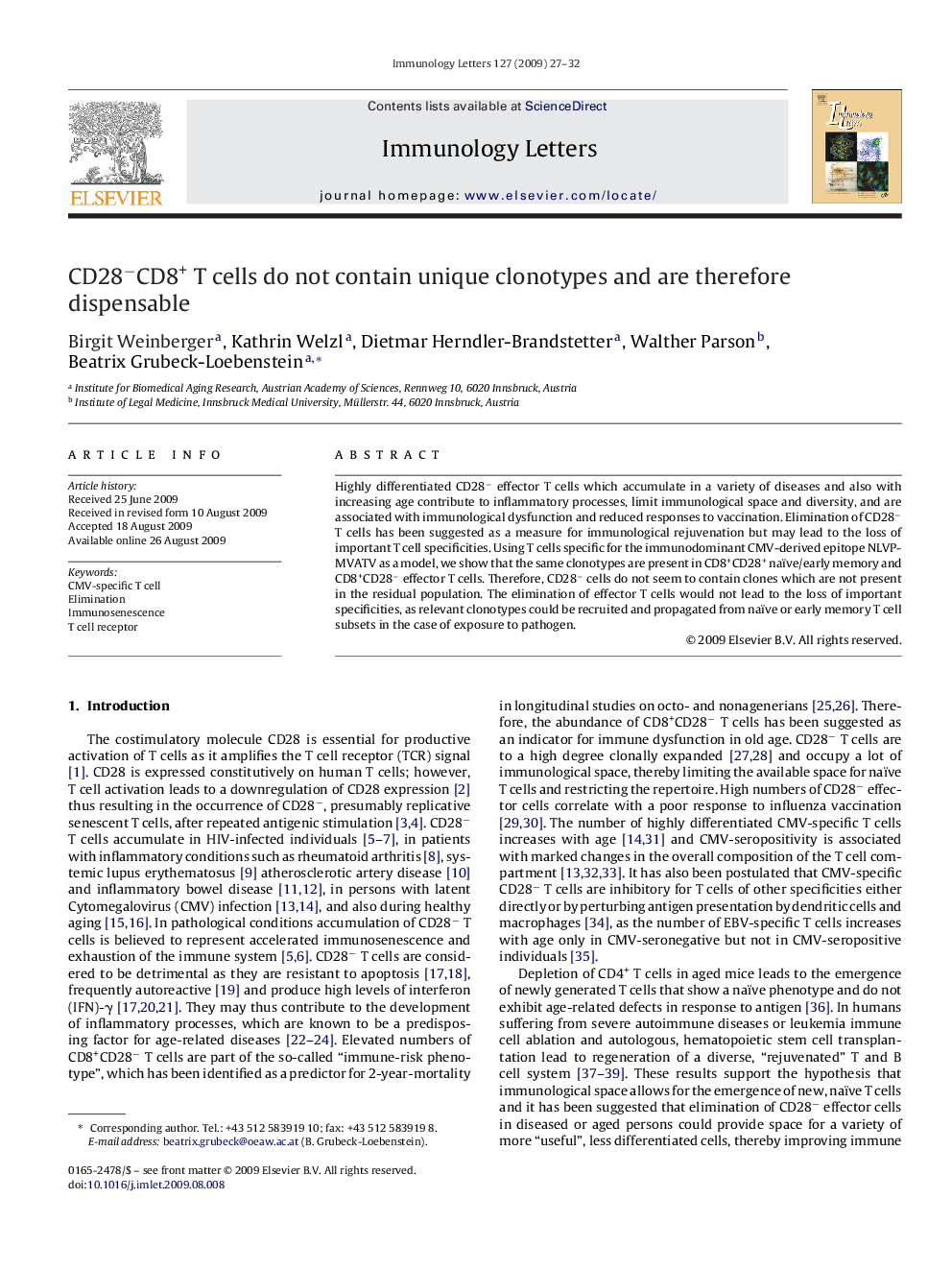| Article ID | Journal | Published Year | Pages | File Type |
|---|---|---|---|---|
| 6117516 | Immunology Letters | 2009 | 6 Pages |
Abstract
Highly differentiated CD28â effector T cells which accumulate in a variety of diseases and also with increasing age contribute to inflammatory processes, limit immunological space and diversity, and are associated with immunological dysfunction and reduced responses to vaccination. Elimination of CD28â T cells has been suggested as a measure for immunological rejuvenation but may lead to the loss of important T cell specificities. Using T cells specific for the immunodominant CMV-derived epitope NLVPMVATV as a model, we show that the same clonotypes are present in CD8+CD28+ naïve/early memory and CD8+CD28â effector T cells. Therefore, CD28â cells do not seem to contain clones which are not present in the residual population. The elimination of effector T cells would not lead to the loss of important specificities, as relevant clonotypes could be recruited and propagated from naïve or early memory T cell subsets in the case of exposure to pathogen.
Related Topics
Life Sciences
Immunology and Microbiology
Immunology
Authors
Birgit Weinberger, Kathrin Welzl, Dietmar Herndler-Brandstetter, Walther Parson, Beatrix Grubeck-Loebenstein,
